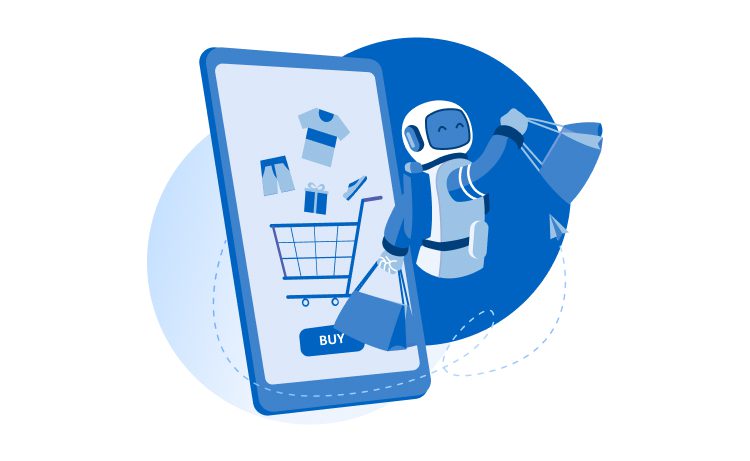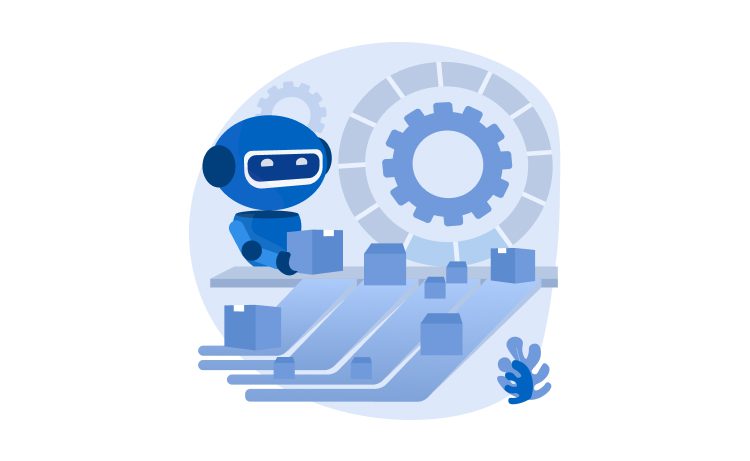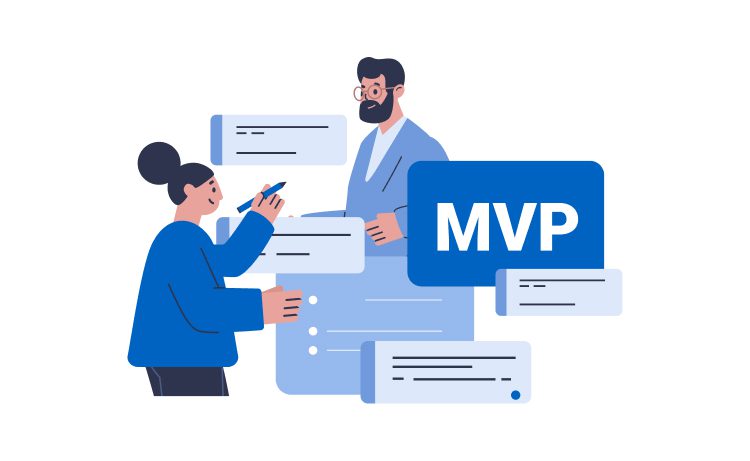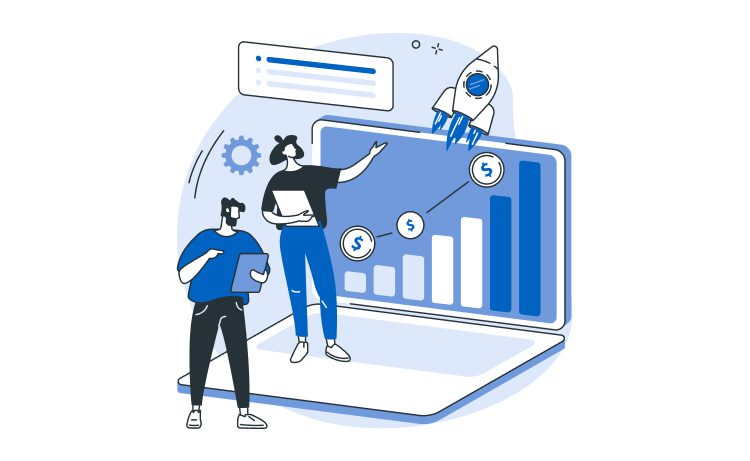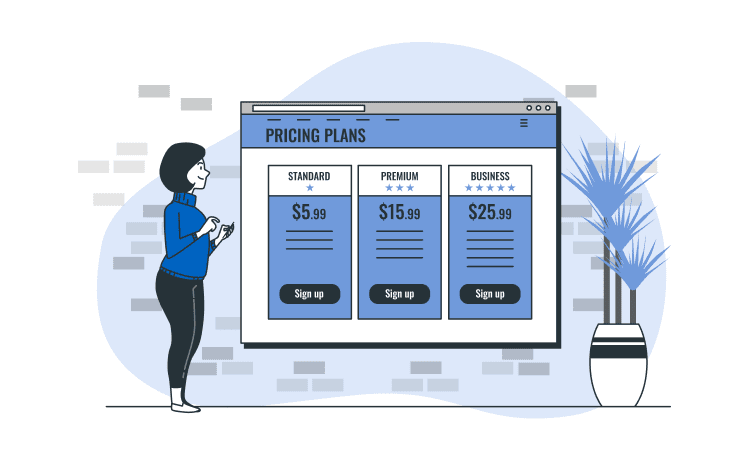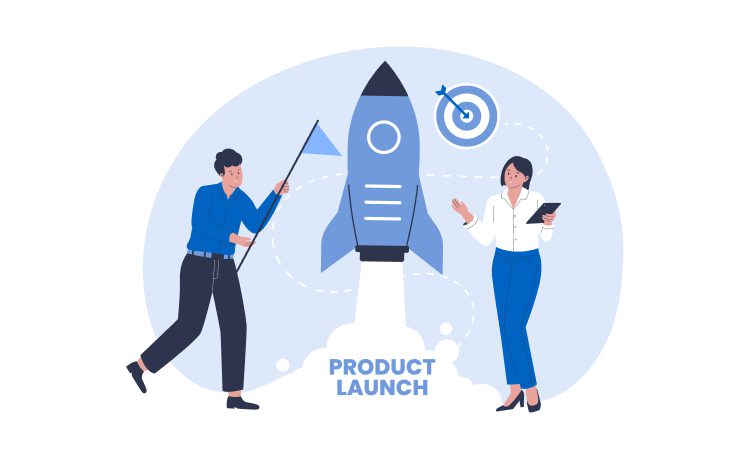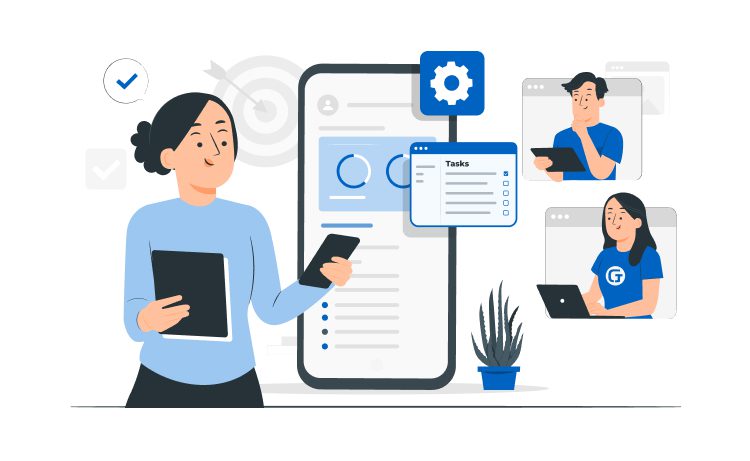
How to Outsource App Development with Confidence



You have a great app idea that’s keeping you up at night. You can already see it: real users tapping away, reviews pouring in, revenue climbing, and maybe your business becoming the next big thing.
But then reality sets in. You start thinking about deadlines, development costs, team capacity, and that disturbing question: “Can we actually pull this off?”
The good news is that you do not have to do it alone. Outsourcing mobile app development might be the smartest move you ever make, and not only because it is cost-effective. It saves time, brings in missing expertise, and gives your product the head start it deserves.
This guide will show you how to outsource app development confidently, with a reliable mobile app development team on your side and zero confusion.
Content
Mobile app development takes far more than a good idea and enthusiasm. While choosing the right technology, getting the right people in place, and racing against deadlines, it’s easy to get frustrated. That’s why many businesses view app development outsourcing as a smart strategic choice rather than a last resort.
Outsourcing mobile app development can come in handy in various situations. You may want to empower your existing team, deliver your app idea to the users quicker than traditional methods would be able to, or find an efficient solution instead of assembling a new in-house team.
To figure out if mobile app development outsourcing is the right strategy for your project, check these signs:
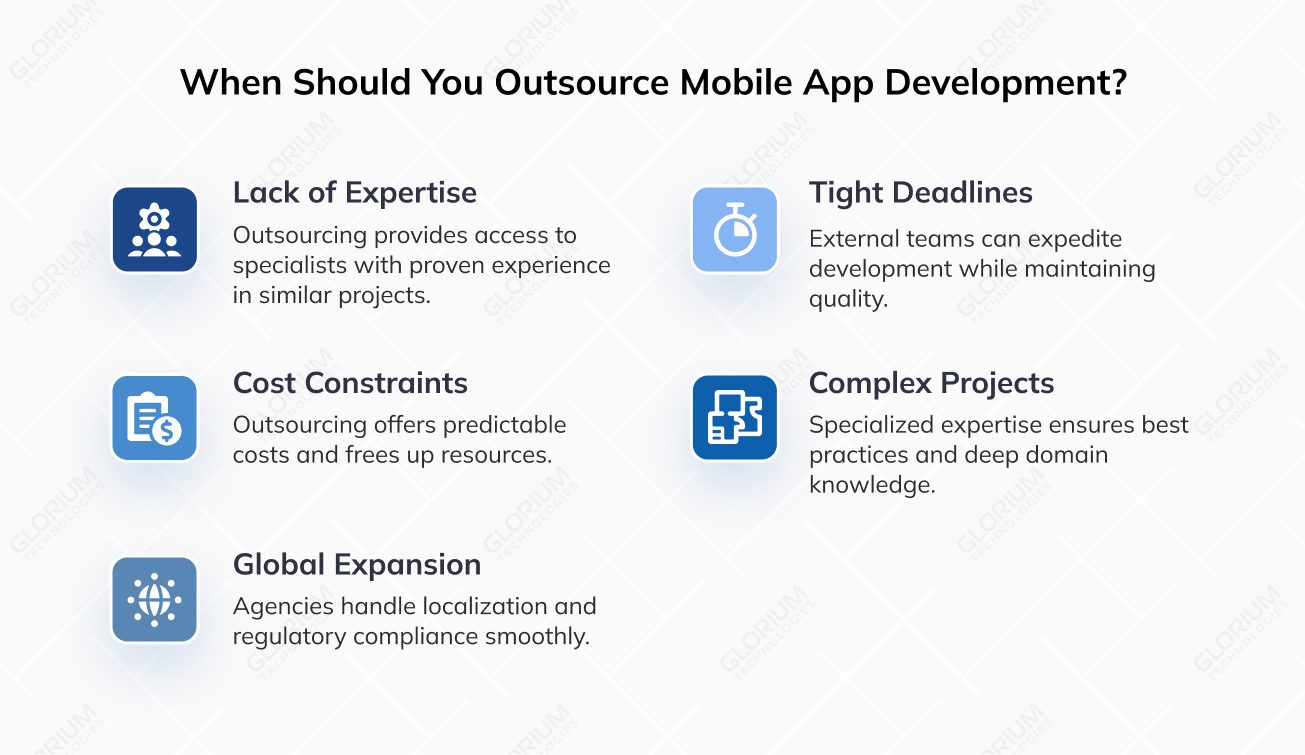
If any of these sound familiar, partnering with an outsourced app development company can be the right choice.
Mobile app development outsourcing has never meant working with a remote, unfamiliar team on the other side of the world. In fact, this model is much more flexible and collaborative than you may expect.
You retain complete control over the situation and have the freedom to choose the cooperation format that best suits your project goals and budget. Let’s explore the different options of mobile application development outsourcing so you can find the best one:
By geographic location, outsourcing is divided into onshore, offshore, and nearshore models. With onshore outsourcing, you’ll be hiring within your own country; offshore outsourcing suggests outsourcing to a distant location (usually to maximize cost savings), while nearshore outsourcing means outsourcing to a nearby or neighboring country, balancing cost and convenience.
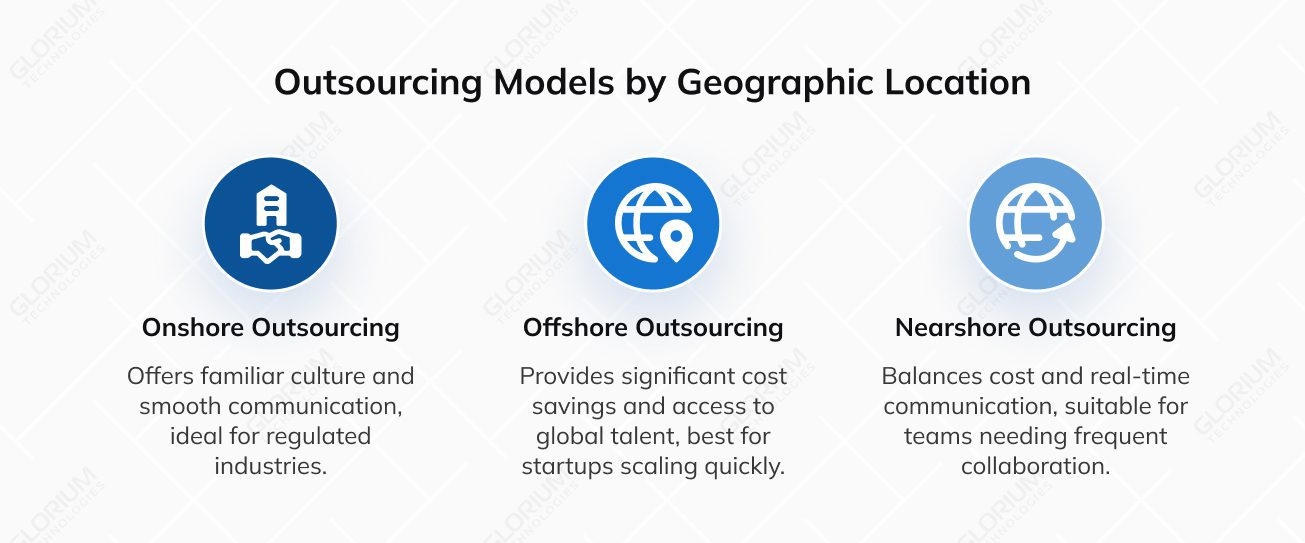
Would you prefer to keep your project closer to home? Onshore outsourcing involves working with a mobile app development company in your country. You share the same language, culture, work schedule, and rules.
Why it works: Smooth communication and the peace of mind that your app developer is just a phone call or a short flight away.
Best for: Highly regulated industries or projects where frequent in-person meetings are essential.
Nearshore outsourcing gives you access to skilled development teams in neighboring countries, often in the same or similar time zone. By choosing this type of mobile app development outsourcing, you benefit from lower costs than hiring in-country.
Why it works: Fewer time zone challenges, cultural similarities, and easier travel if face-to-face collaboration is needed.
Best for: Teams that want real-time communication without the higher expense of onshore teams.
Ready to go global? Offshore mobile app development outsourcing connects you to teams worldwide, usually at a much lower cost. You can tap into deep talent pools of offshore mobile app developers in regions like Eastern Europe, Asia, and Latin America.
Why it works: Cost-effective strategy giving you access to specialized expertise you might not find locally.
Best for: Startups and companies that need to scale quickly on a limited budget.
By cooperation type, outsourcing can be categorized into dedicated teams, staff augmentation, and fixed-price cooperation models. Dedicated teams are great if you’re looking for a standalone unit built for you. Staff augmentation adds external experts to your existing team, and a fixed-price model is a comfortable project-based agreement with a set scope. Let’s explore each of them in detail:

Under this model of mobile app development outsourcing, you cooperate with a mobile development agency that is fully committed to your project and goals. The dedicated team works just for you and acts as an extension of your staff.
Why you’ll love it: End-to-end control over workflows, deep knowledge retention, and strong, consistent collaboration with a dedicated team
Best for: Complex app development project that evolves over time or requires continuous development and support.
This model is most comfortable for companies that want project predictability and budget stability. The app development company you choose will set the scope, budget, and timeline upfront, so you don’t have to deal with surprises later on.
Why you’ll love it: Clear app development cost, defined deliverables, and no surprises down the line.
Best for: Smaller projects with well-defined requirements unlikely to change.
This model may be the right choice if you already have an in-house team but need extra mobile app developers or specific expertise. Staff augmentation lets you add outside engineers to fill skill gaps, boost capacity, or move faster.
Why you’ll love it: Flexibility to scale up or down without long-term commitments.
Best for: Companies that need to ramp up quickly or tackle short-term projects without hiring permanent staff.
No matter the collaboration type, mobile app development outsourcing allows you to control and shape the partnership to fit your goals, budget, and vision. With the right approach and the right software development company by your side, this cooperation model isn’t just convenient. It can be an excellent strategy for achieving market success while keeping project costs low.
The app development process can feel like assembling a 10,000-piece puzzle. Each piece costs time and money, and one misstep can change the whole picture. Even the most experienced software development agency can get overwhelmed dealing with tight timelines, shifting requirements, and novel technology.
That’s why many businesses outsource mobile app development services. Deloitte’s 2024 Global Outsourcing Survey found that 40% of company and IT leaders want to spend more on third-party IT services. The collected data shows that organizations, from small local companies to big enterprises, view outsourcing mobile app development as a smart way to drive innovation, speed, and scalability.
And here’s how that plays out in practice:

Outsourcing mobile app development provides access to specialists with deep knowledge and unique skills that are rarely found in the local market. Looking for a solutions architect with experience in FinTech? Need to hire a software engineer with AI implementation expertise in their portfolio? The traditional approach to recruiting these niche professionals will take months (if there are no mismatches). However, outsourcing with a trusted vendor will not only speed up the implementation process, but also ensure quality that is difficult to achieve otherwise.
One of the reasons why outsourcing is attractive is its ability to reduce costs associated with traditional hiring methods. Companies often work with outstaffing agencies to avoid spending thousands on recruitment, training, onboarding, and other hiring-related expenses.
And while cost-efficiency is essential, you also get to quickly scale your team up and down (depending on the project requirements). Add specialists when you need extra hands, quickly substitute mismatched candidates, or scale down your team when the project only needs support and maintenance – maximize flexibility without additional obligations.
Outsourcing becomes a strategic advantage in situations when you need to develop mobile apps quickly. Instead of assembling an in-house development team, you bring in professionals with experience in your target industry.
The team already has effective processes set in, coordinated work rules, and clear task management, which significantly shortens the development cycle. The result of outsourced software development is a faster launch, earlier market testing, and a competitive advantage.
Outsourcing mobile app development allows a company to focus on its core objective: growing a business. External teams handle the creation of mobile apps, technical support, and related back-office processes.
Meanwhile, you can direct your resources and time to strategic planning, customer analytics, or sales. This separation of responsibilities creates greater transparency in work and reduces internal overload.
Every project comes with unknowns. Markets shift, priorities change, and budgets get reallocated. Outsourcing gives you the built-in flexibility to adapt quickly without derailing progress.
In addition, responsible contractors often offer SLAs (service level agreements), backup solutions, and decades of experience in anti-crisis management, which helps avoid critical mistakes and meet deadlines.
Operating costs are an invisible but significant part of the overall budget. Workplaces, licenses, technical support, infrastructure – all this can “eat up” significant amounts. If you decide to outsource app development, you can avoid these costs.
Mobile app development agencies work with their own equipment, in their own setup, according to their employer’s requirements. As a result, you get fewer challenges, lower expenses, and more resources for business development.
Outsourcing mobile app development offers tremendous advantages, but it also comes with challenges you shouldn’t ignore. However, most of them are completely manageable if you know what to look for and take steps to address them early.
Here are the most common pitfalls (and how we stay ahead of them):

Scattered teams, different languages, and work cultures may result in some minor miscommunications. We’ve seen cases where miscommunication has resulted in delayed updates and relatively minor issues that can escalate quickly.
How we handle it at Glorium Technologies: We choose intuitive communication channels that are convenient for our customers. Our project managers apply effective remote project management practices and conduct regular meetings to keep you up to date. This way, we maintain full transparency and minimize misunderstandings, ensuring that your feedback is heard and always taken into account.
An unreliable app developer might deliver unsatisfactory project results like buggy code, clunky design, or unpredictable performance. Fixing these problems later is almost always more expensive and time-consuming than doing it right the first time.
How we handle it at Glorium Technologies: To avoid quality control issues, we set clear quality benchmarks for our projects from day one. Our QA teams run testing and conduct regular demos. We monitor every deliverable proactively to ensure top-tier quality at every stage.
Your app may handle sensitive customer data, financial information, or proprietary business details. If any of this leaks or is mishandled, the damage to your company can be severe, affecting both your finances and your reputation.
How we handle it at Glorium Technologies: We study your confidentiality and security needs and implement strict data protection policies for each project. We also sign NDAs with our clients and apply secure development practices. All projects comply with GDPR, HIPAA, or any relevant standards required for the target industry.
A 10-hour time difference can feel like an ocean between you and your development team. Waiting an entire day for a simple answer can slow progress to a crawl.
How we handle it at Glorium Technologies: Outstaffing from a different country always creates some time zone mismatches. To handle such issues, we set overlapping working hours with our clients, use async-friendly tools like Slack, Notion, and Jira, and schedule regular check-ins to make sure we’re on the same page, regardless of geography.
The unpredictable cost of outsourcing is among the most frustrating aspects of SaaS application development. This includes extra charges for revisions, added features, or delays that quietly drain your budget.
How we handle it at Glorium Technologies: Our team offers transparent, milestone-based pricing. All details and potential extras are considered in advance so that you always know what you pay for. Any scope changes are discussed with you openly to ensure there are no surprises.
It can feel unsettling to hand over so much responsibility. Without strong oversight of outsourcing mobile app development, companies fear that the decisions will stray from their original project vision.
How we handle it at Glorium Technologies: We keep you in the driver’s seat with shared roadmaps, approval points, and detailed progress reports. The project completely belongs to you, and we’re just here to help you build it.
Who owns your code, designs, and data? If that’s not clearly defined in your agreement, you could face disputes with your mobile app development team down the road.
How we handle it at Glorium Technologies: Every contract we sign clearly defines IP ownership. Everything we build for you belongs to you. No gray areas, no ambiguity.
Relying entirely on the technical expertise of an outsourcing company creates risk if they change priorities, restructure, or even shut down.
How we handle it at Glorium Technologies: We create a detailed documentation and knowledge transfer plan from day one. If needed, we support smooth handovers or team augmentation to reduce long-term dependency.
These pitfalls shouldn’t stop you from outsourcing mobile app development. They simply tell you that you need to approach it thoughtfully. Success comes down to selecting a development company you can trust: one that shares your standards, communicates openly, and is fully invested in your goals.
One of the primary questions teams ask when exploring mobile application outsourcing is simple: What is the product development cost?
A simple answer is that app development budgets are never one-size-fits-all. The price can range from a modest investment to a significant expense, depending on what you’re building, how you want it to work, and who you choose as your development company.
According to Gartner, by 2027, companies in most industries will spend 50% more on IT contractors than on internal IT staff. As a result, outsourcing app development is becoming the most efficient and often the only way to access high-end capabilities without cost overruns.
Before you start collecting proposals or comparing estimates, it’s helpful to understand what factors drive the app development cost up or keep it under control. Here are the key ones to consider:

Ready to begin your journey to outsourcing mobile app development? Here’s a simple step-by-step guide to keep your app development project on schedule and your stress level low:
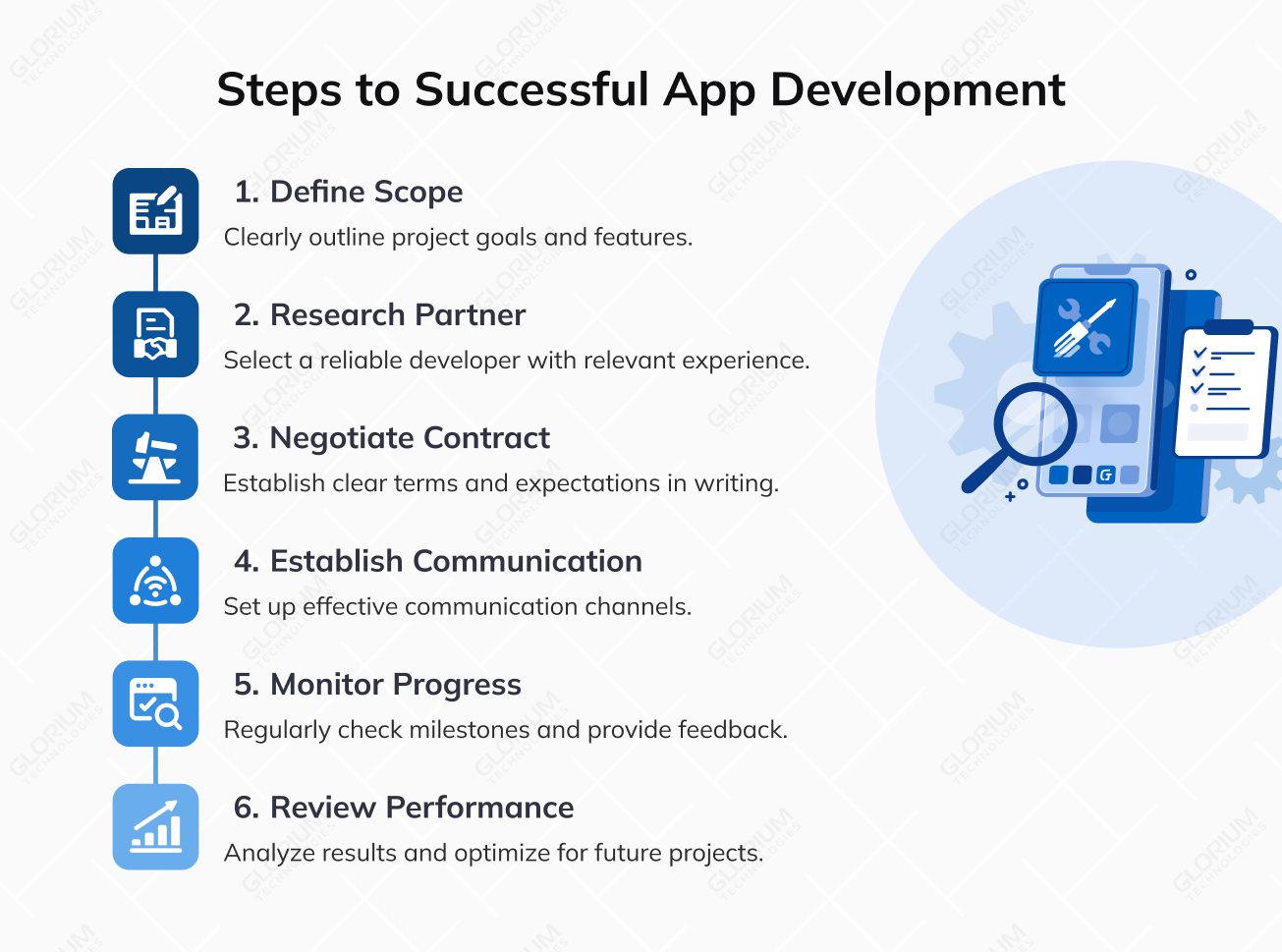
The first thing you need to do (even before researching a reliable partner) is to define your app development purpose. What will your application do? How will it help your target audience? The whole development process depends on this step. With a clear understanding of what your app will do, you’ll avoid additional expenses and encounter fewer pitfalls down the road.
Don’t hurry the market research process. Spend time looking at portfolios, reading client reviews, and interviewing. Find an app developer with demonstrated experience in your tech stack and industry.
Get everything in writing: deliverables, timelines, payment schedules, and ownership of code. Outline how changes will be managed so nothing falls through the cracks. A solid contract, complied with by business analysts, legal representatives, and tech experts, protects all parties involved and establishes clear expectations from day one.
Set out how you’ll keep in contact: daily stand-ups, weekly reports, shared project boards. Have definite points of contact on both sides to prevent confusion. Effective communication is the cornerstone of successful mobile application outsourcing.
Monitor milestones carefully, conduct software testing early and frequently, and provide feedback right away. If something does not go quite right, let your partner know. Minor changes early on prevent major headaches down the road. Frequent check-ins ensure the software development remains in line with what you have in mind.
Following the launch, spend some time assessing what worked and what didn’t. Gather feedback from users, analyze performance metrics, and craft updates with your partnering company accordingly. These insights will make your next project even smoother and more successful.
Get these in order, and you’ll be ready to create an app that is not only cost-effective but also fully meets your business needs and goals.
So, you’ve selected your app development outsourcing partner and are determined to delegate the creation of your product to an expert team. Apply these tried-and-tested tips to effectively outsource your app development and achieve the results you expect:
Don’t settle for a generic experience. Ensure the assembled software development team has a proven track record of delivering similar projects and is familiar with your target market. The right experience of an app developer will save you time, money, and sleepless nights.
Regular check-ins keep everyone on the same page, moving forward, and accountable. Even a 15-minute daily call helps you catch issues early and maintain the pace in your app development outsourcing.
A working prototype turns your idea into a measurable and definable solution you can test and assess. It’s the optimal method for verifying your concept and preventing costly rework down the road.
What happens after app development outsourcing comes to an end? Make sure your contract includes clear provisions for updates, maintenance, and bug resolution.
If you follow these guidelines, you safeguard your investment and enable your developers to create an app you’ll be proud to send to the world.
Looking for an outsourcing partner who truly understands your industry, knows how to build successful products, and has solid experience in international collaboration? You’re in the right place.
Glorium Technologies is a team with over 15 years of experience in digital product development. We’ve helped our clients build successful, user-friendly apps for industries ranging from healthcare to e-commerce, real estate, and more. Our track record speaks for itself. Explore the cases where we:
We know how to build apps that delight users, fit your budget, and drive fast growth. Book an intro call today and tell us about your app idea.
When outsourcing mobile app development, try to be as detailed as possible in your contract. Clearly outline your project scope, deliverables, timelines, and payment terms. Include a detailed breakdown of all costs, covering potential extra charges for additional features, revisions, or extended timelines.
The cost depends on numerous factors. As a rough estimate, app development outsourcing may cost anywhere from $20,000 to $250,000. For a more precise estimate, clarify your requirements and request proposals from several vendors you find trustworthy.
Slack, Microsoft Teams, or Google Chat are good tools for daily communication. Jira, Trello, or Asana manage tasks and keep everyone on the same page regarding workload and deadlines. Plus, you can use video conferencing tools such as Zoom or Google Meet for regular check-ins and progress reporting.
Quality begins with establishing clear expectations. Ensure that you have clear quality and acceptance criteria for app development set right from the start. Make sure your partnering company conducts rigorous testing throughout development. Hiring an independent QA team and asking for regular demos or prototypes are also good practices that reduce the risk of bugs in the final product.

